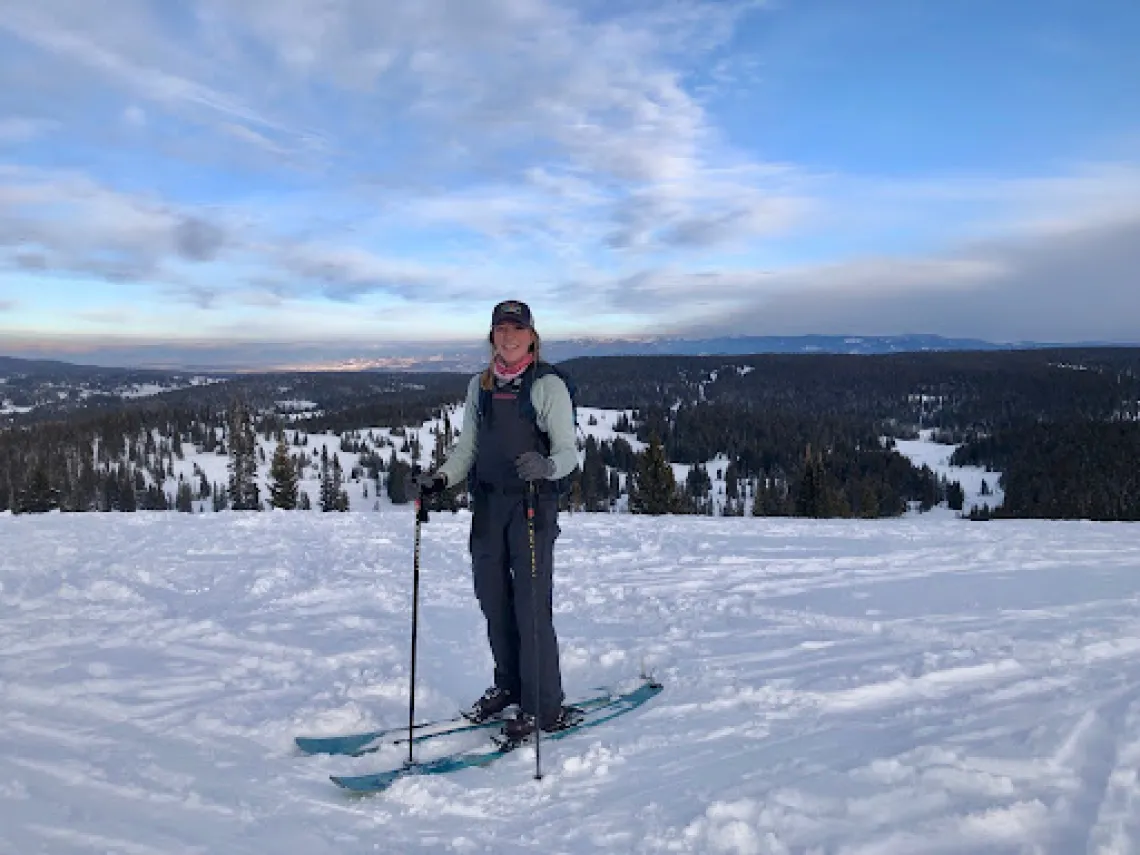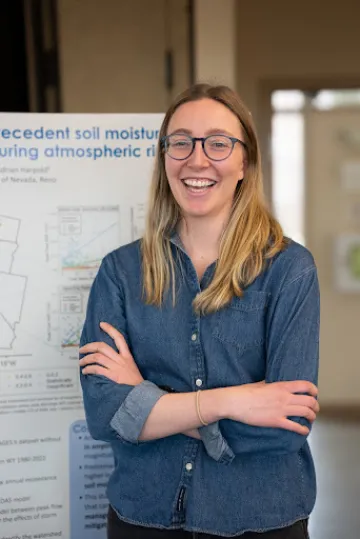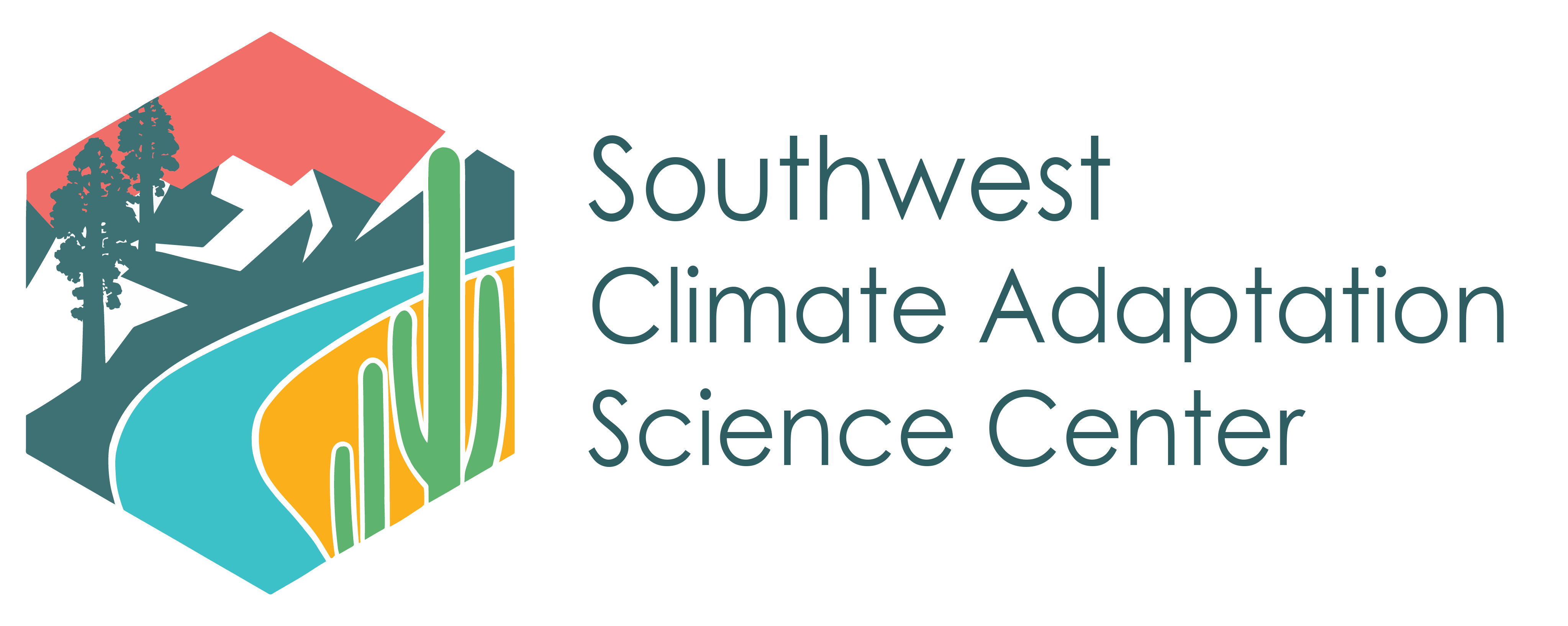Balancing the Hazards and Benefits of Water in the West


Growing up in the Western U.S., I witnessed the complexities of water management from a young age. I vividly remember taking short showers and watching our lawn dry up in drought years while also seeing my high school flooded with a foot of water during a particularly wet year. In my research now, I am interested in the balance between water-related benefits and hazards. I am drawn to studying atmospheric river events because they are simultaneously so integral to Western water resource supplies but also cause the majority of floods on the West Coast of the U.S.
I am now a Ph.D. student in the Graduate Program of Hydrologic Sciences at the University of Nevada, Reno researching the impacts and risks associated with flooding caused by atmospheric rivers. Specifically, I investigate the physical mechanisms that amplify flooding, the socioeconomic consequences of compounding floods, and variations in flooding across continents.
Motivated by my desire to deepen my knowledge of climate-informed natural resource management and engage with a cohort of other graduate students, I applied for the SW CASC Natural Resource Workforce Development (NRWD) fellowship. Starting graduate school amidst the pandemic in 2020 was challenging in large part due to the isolation from other students. Without in-person classes, conferences, or training in my first year of studies, I had more limited opportunities to build a science community. Therefore, one aspect of the Fellowship that highly appealed to me was the collaboration and exchange of ideas that would take place over the Fellowship year. During my time in the Fellowship so far, I have found that some of the best research ideas come out of conversations with people working on similar problems from an entirely different angle.
My NRWD Fellowship cohort has decided to work on a project examining the impact of compounding climate extremes on aquatic ecosystems, with a specific focus on how increased application of fire retardants affects water quality. So far we have created a climate extreme heat map that identifies watersheds that have experienced combinations of extreme precipitation, drought, fire, and flood. Within the climate extreme hotspot regions we identified, we are also looking at water quality indicators and surveying local organizations about their concerns. We selected this project because it leverages the diverse strengths of our cohort members and addresses the concerns raised by organizations on the ground. I particularly appreciate this project as it allows me to apply the data analysis skills I have acquired during my graduate studies while also expanding my understanding of topics beyond my expertise. Thus far, I have gained insights into partner engagement, the internal review board (IRB) process, and the impacts of pollutants on aquatic ecosystems.
Participating in this Fellowship has exposed me to the potential for cross-discipline collaborative research. It has been so wonderful to work with a group of students with varying backgrounds and I think the breadth of our knowledge has pushed all of us to expand the ways we approach research. Additionally, this Fellowship has offered formal training on engaging with partner organizations, which is something I want to continue pursuing in future research projects. After completing my Ph.D., my goal is to build a research career focused on Western hydroclimate. I want to continue studying the balance between the beneficial and hazardous impacts of extreme events, ultimately benefiting communities and ecosystems. Going forward, I will continue to draw on the skills and connections I have built during my time as an NRWD fellow.

